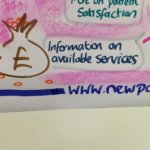
The 2016 International Participatory Budgeting Conference – What has it got to do with health?
MutualGain are pleased to announce their attendance at the 2016 Participatory Budgeting Conference in Scotland, where they will be presenting a workshop on the opportunities that Participatory Budgeting has to improve public engagement and participation in commissioning. Here, Owen Miller, MutualGain’s Business Development Lead, discusses his experience of Participatory Budgeting (PB) used in commissioning Urgent Care Services.
It was a weekend I was dreading; three 12 hour shifts working at a Minor Injuries Unit over a bank holiday weekend in the middle of summer. Having worked in Urgent and Emergency care now for two years, I knew I was in for a busy weekend. I also knew that I’d spend the vast majority of the weekend treating, or trying to seek treatment, for those who presented to our unit with conditions that were “inappropriate” for us to treat. I was constantly frustrated by the state of the urgent care system where I worked, where patients constantly struggled to gain urgent care in a system which many felt to be designed badly with little consideration for those without transport, or who were not literate with IT. I myself constantly found the access criteria for certain urgent care services baffling, and felt on more than one occasion to be the “final” option for those who had reached the end of their tether and turned up often in tears or fuming with anger. My opinion was that our local urgent care system didn’t reflect the needs of the population, and that actually just by speaking to any patient you were able to get some great suggestions as to how it could be improved.
For this reason, when the opportunity came up to assist North Tyneside CCG with an innovative new method of engaging with local communities, I jumped at it. Participatory Budgeting is by no means a new idea; it has been in use in Brazil since 1989 and came to the UK in 2000. It is now used worldwide in over 2000 cities, and is recognised good practice by the World Bank, UNESCO, OECD, the UN, and DFID. “True” PB occurs where an amount of public sector budget is given over to a PB process where local residents get the power to decide where this money is then spent. In the UK, it is common for small pots of money to be set aside where community groups and individuals can all “bid” into.
However, North Tyneside CCG, in association with MutualGain who had been selected to assist them, identified that in their situation a new method of Participatory Budgeting would be required. It was decided that the CCG would hold a pre-engagement consultation with three groups; the Urgent Care Board, Providers of Urgent Care Services, and the public. In these events, participants would get to use real budgets to spend their “urgent care pound” – deciding which mixes of services they wished to purchase for their local population, and these decisions going on to advise the CCG on their consultation options.
Whilst sounding like a complicated venture, the process itself was split into three main sections. Firstly, with the CCG engaging fully with the democratic process, their financial officers provided simplified breakdowns of the relative spend of current services, as well as the forecasted spend of these services in the future. It was vitally important that the CCG got fully on board this venture; it needed some complex information to be calculated and individuals to participate fully in the process, and North Tyneside CCG should be praised for the way in which they did. The events themselves were designed so as to not only provide an overall “result” – the choice of services on which groups decided to spend their urgent care pound, but also to provide a rich dataset of comment and opinion about how the current services functioned.
The events themselves were hugely successful, and the resulting datasets were then analysed by MutualGain, who have experience in producing insightful reports using qualitative and quantitative data produced at engagement events. The report allowed North Tyneside CCG to make much better informed decisions alongside their existing datasets to design the consultation scenarios to be presented when carrying out their urgent care redesign.
I was so interested by the results of this project that it led me to devote my dissertation to studying the role of “inappropriate attendance” at emergency departments in the UK. I believe that it’s only by better understanding the decisions made by the public when accessing and using healthcare that will lead to better decisions to be made about how to structure services to not only reduce confusion and deficit, but reduce the costs by patients not receiving care, or by receiving care in the “wrong” place.
That’s why I believe that Participatory Budgeting provides an opportunity for NHS organisations to gain a new insight into the views and behaviours of their local populations; one where the public are able to make rational, logical cost-based decisions to inform commissioners about where they believe priorities should lie in commissioning.
If you are interested in learning more about Participatory Budgeting, visit our website, www.mutualgain.org, or that of the Participatory Budgeting Network, www.pbnetwork.org.uk.
Owen Miller is Business Development Lead at MutualGain, an organisation providing training and support for organisations looking to improve their engagement and participation practices. Owen has a particular interest in improving public participation in healthcare commissioning. His director, Susan Richie, currently chairs the UK PB Network, and MutualGain has extensive experience in delivering PB based consultation to a range of public sector organisations.
The International Participatory Budgeting Conference is being held on the 20th and 21st October 2016 in Edinburgh. More details can be found on the SCDC website, here: http://pbscotland.scot/, with details of the fringe events here: http://pbnetwork.org.uk/.
If you’d like to talk to MutualGain about using PB in your organisation, Owen is contactable by email: owen@mutualgain.org, and mobile, 07835304699.


